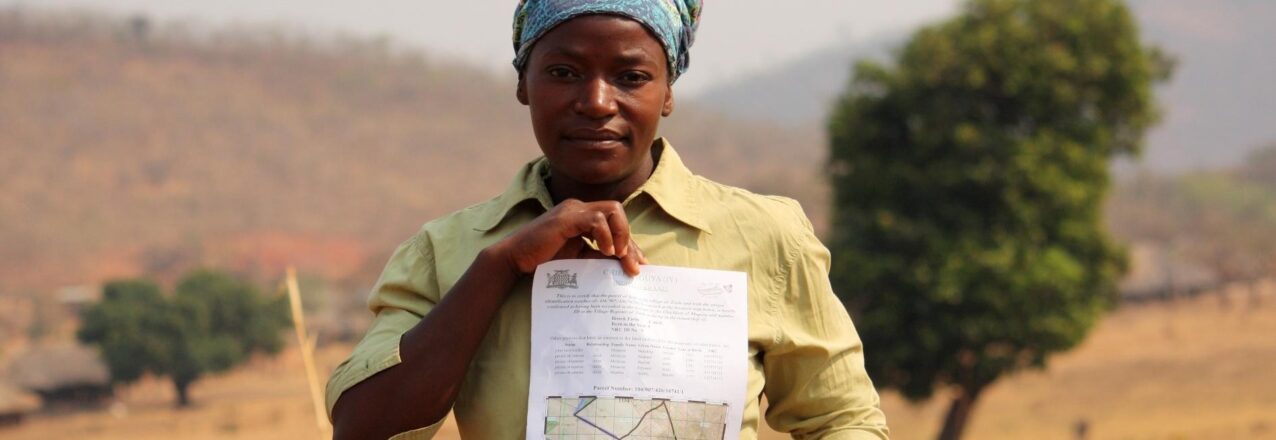Additional authors include: Andrew Hagopian, Chris Mellon, Tasha Heidenrich, and Niketa Kulkarni.
For more than 50 years USAID has been a significant donor in the land and resource governance (LRG) sector. Strengthening land and property rights is central to ending extreme poverty, reducing hunger, and promoting resilient societies. This research agenda positions LRG within USAID’s goal of promoting the Journey to Self-Reliance and provides the foundation for USAID and others to undertake a carefully considered, systematic approach to reducing key knowledge gaps in the LRG sector.
The review of the evidence, coupled with insights from multiple LRG experts, provide the basis of the following research priorities organized by thematic area below. A full description of each research priority, and additional details about the methodology and other findings by sector are available in the full report.
Downloads available:
Theme 1: CROSS-CUTTING RESEARCH TOPICS
- Customary tenure and the continuum of rights.
- Links between titling, documentation and tenure security.
- LRG and what else? Digging into ‘necessary but not sufficient.’
Theme 2: ECONOMIC GROWTH
- Unpacking the link between LRG and economic growth.
- Economic growth for whom, and what additional facilitating conditions are required?
Theme 3: WOMEN’S EMPOWERMENT
- More rigorous, longitudinal research, especially on intra-household bargaining power and decision-making.
- Testing the link between women’s LRG and poverty alleviation.
- Developing more accurate and nuanced methods for assessing the impacts of LRG programs on women.
- Formalization of women’s land rights and spousal death or divorce.
- Social norms and women’s land rights.
Theme 4: SUSTAINABLE LANDSCAPES AND BIODIVERSITY
- Which LRG programs are most cost-effective in mitigating climate change and how to address economic trade-offs?
- Unpacking the links between private tenure, forest protection policies, and deforestation.
- Integrating indigenous knowledge into the design of LRG programs.
- More studies that incorporate spatial analysis and more spatially explicit econometric studies, particularly in Africa and Asia.
- What is the link between LRG, sustainable intensification practices (SIP), and reducing environmental damage?
Theme 5: FOOD SECURITY AND RESILIENCE
- Long term impacts of LRG on food security.
- Taking another look at credit.
- Taking another look at productivity and income.
- Farmland tenure models in Africa.
Theme 6: CONFLICT, PREVENTION AND STABILIZATION
- Improved cross-national data on the causes of land conflict, particularly when it comes to non-State actors.
- Is LRG an effective way to prevent conflict?
- The link between climate change, migration, and conflict.
- The relationship between improved LRG and large-scale land-based investment.
- Effective mechanisms for post-conflict property restitution.
Theme 7: EMERGING LRG TOPICS
- Ground truthing new land rights approaches.
- Are new technologies delivering on their promise?
- LRG and managed coastal retreat.
- The impact of urbanization on land rights.
- Urban application of the Mobile Applications to Secure Tenure (MAST) approach.
- Private sector perceptions, policies, and practices related to land tenure risk.
- Sustainability of land administration systems.
- How must legal frameworks adapt to take advantage of new land technologies?
- Better understanding of the artisanal and small-scale mining sector.
The research agenda was prepared by: Caleb Stevens, Yuliya Panfil, Benjamin Linkow, Andrew Hagopian, Chris Mellon, Tasha Heidenrich, Niketa Kulkarni, Ioana Bouvier, Stephen Brooks, Sarah Lowery, and Jeremy Green.


